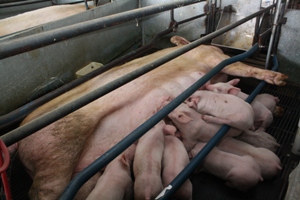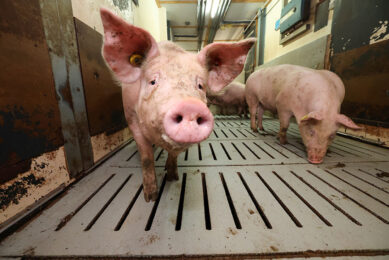RESEARCH: S. suis transmission hardly occurs from sows to piglets

There is very little chance of piglets getting infected by Streptococcus suis due to sow-piglet transmission. Colostrum appears to play an important role in avoiding an infection.
This was the outcome of research by Utrecht University, Dutch agricultural newspaper Boerderij Vandaag reports.
Veterinary scientists from the university used two groups of seven sows, which all had tested positive for S. suis, type 2. One half were vaccinated and received antibiotics, the other did not receive any treatment and served as a control group.
The research showed that all litters in the treatment group tested negative for S. suis. In the control group, however, only one group tested positive. Arie van Nes, head of the Department of Farm Animal Health, spoke of a remarkable outcome.
He said, “One would expect the piglets to contract the bacteria when sows when they carry them. This, however, turned out not to be the case.”
The scientists zoomed in on the presence of the bacteria post-weaning – and of 17 sections, ten proved to be positive for S. suis; seven were negative. Van Nes said that the chances of piglets getting infected is getting bigger once they are weaned and get transported. Transport causes stress – and this leads to a higher permeability of the intestines.
Colostrum intake, therefore, is a major element in this story, said Van Nes: “Colostrum contains imporant antigens. It is possible for piglets to contract an infection after weaning as a result of a reduced colostrum intake in the first days after farrowing.”
Read more on S. suis infections in our health & diseases section.
Related websites:
• Utrecht University











